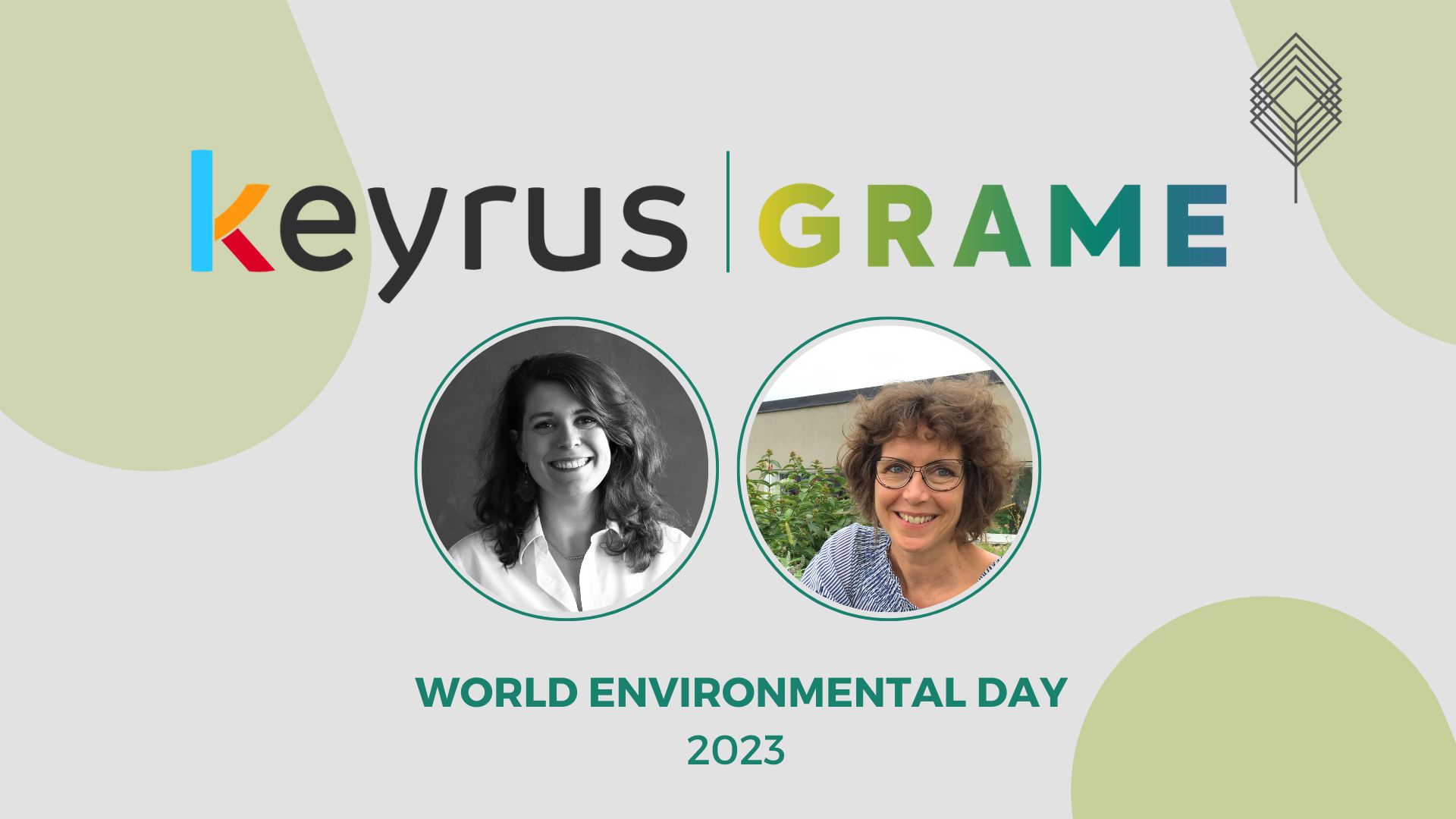Make a difference with small actions, which are part of a big fight.
Interview with Femke, coordinator of the Éco-quartier Lachine and involved in GRAME for 7 years and Sandrine, communications coordinator, in office for 3 years.
Born in 1989, GRAME is an organization based in Lachine. With 40 employees, and occupying the title of official representative of the eco-district, GRAME occupies a central role in a microcosm in full ecological transition. GRAME actions are mainly focused on greening the West of Montreal, responding to a rapidly growing demand from businesses and communities to green the surrounding outdoor spaces. GRAME’s ray of competence is, however, much broader: other branches such as environmental education (workshops in schools and companies, etc.), actions aimed at developing influence with local and provincial political decision-makers, or interventions with the Régie de l'énergie are flagship actions that the organization undertakes throughout the Montréal region.
Keyrus: To what extent are Montreal companies committed to ecological actions?
GRAME: We have observed, very positively, that there is no type of company more committed than another. We collaborate with all sizes of companies that wish to reorient or evolve the values of their structure. There is a real enthusiasm for "team building" type activities and we support managers and employees in this awareness. Often the question arises with teleworking and new hybrid timetable patterns, and companies whose core business is digital are also affected by digital pollution. Even though this subject is still nebulous for many, the desire to reduce the carbon footprint and greenhouse gases (GHG) is present.
Keyrus: What are the main issues that an organization like yours can face on a regular basis?
GRAME: Although we see that awareness is effective and awareness is growing around us, we still lack support and funding. Companies appreciate our services, which represents a diversification of revenues for us, but we must constantly increase our efforts to meet the requirements of grant distributors and meet increasingly complex specifications to obtain this funding.
The lack of government regulations can also be an issue. The difference is clearly noticeable when institutions introduce new laws that are consistent with our actions. They provide a real framework to encourage and apply our measures. We therefore hope that our collaboration with governments will continue to grow, as they are the fuel of our actions.
Keyrus: We have adopted a fairly flexible working model for our employees. What actions could we suggest to our teams to start reducing our impact now?
GRAME: It is certain that there are a multitude of ways to adopt simple actions in business. Here are some examples that can be a good start:
Choosing reusable utensils and dishes over disposable ones by making them available to employees;
Set up a residual materials management system (recovery of recyclable materials, compost, etc.);
Management of computer equipment: recycling and user tools recuperators;
Awareness and education around small gestures at home and in business;
Activities of all kinds: survey employees to find out what they would like to undertake as volunteer actions. Etc...
Influence is also an important element: we find that companies that adopt governance or management models oriented towards sustainable development are much more successful with the implementation of measures. Employees follow the example of their leaders!
Keyrus Canada and KLS are proud to have already implemented international actions to strengthen their commitment to protecting the environment. Strategies are developed and reinforced through inspiring initiatives. Congratulations to our teams who work to make a difference!
